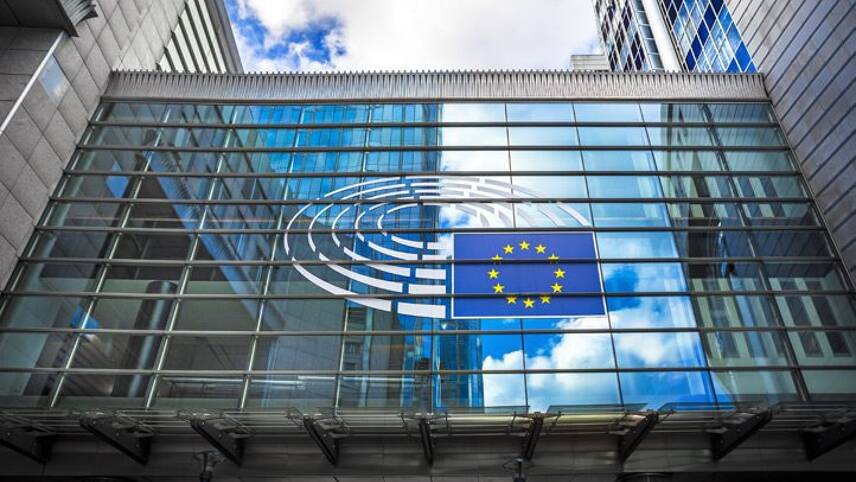Register for free and continue reading
Join our growing army of changemakers and get unlimited access to our premium content

The proposed revenue cap is complemented by unprecedented measures to reduce electricity demand
The revenue cap is the centrepiece of a draft EU regulation on emergency measures to stabilise the electricity market, expected to be unveiled in the coming weeks by the European Commission.
It will be discussed at an extraordinary meeting of EU energy ministers on Friday to address the EU’s response to the energy crisis.
“The Commission proposes a limit of €200/MWh” on so-called “inframarginal” electricity generators, the proposal says in reference to renewables, nuclear and lignite, which have low operating costs and have benefitted the most from high gas prices.
Producers of renewable and nuclear electricity are making “enormous revenues” from the crisis, explained Ursula von der Leyen, the president of the European Commission.
“These revenues do not reflect their production costs. So, it is now time for the consumers to benefit,” she said at a press briefing on Wednesday (7 September).
“We will propose to re-channel these unexpected profits to the Member States so that [they] can support the vulnerable households and vulnerable companies.”
Preserving margins for solar and wind
EU officials said the intention behind the €200/MWh limit is to favour renewable energy technologies over fossil-based power generators like coal or gas, which have higher fuel costs.
“By far the cheapest are the renewable generators – solar and wind in particular,” explained a senior Commission official who was briefing the press about the proposals on Wednesday.
“And so, if you set a similar revenue cap for all the inframarginal technologies, the cheapest are those that will see the higher margin up to that cap and retain a revenue,” the official said.
But some doubt the move, saying it won’t help bring down prices. “A uniform revenue cap of 200 €/MWh across all generators means that some plants – modern renewables, nuclear – will continue to make very high profits, while the cap is too low for coal plants that currently face all-time high coal and transport costs,” said Lion Hirth, a professor at Hertie School in Berlin.
More importantly, Hirth pointed to “the lack of any provisions that account for forward hedging” on electricity trades.
Power generators usually sell their production two to four years ahead of time, he explained. But with the current high prices, “they have sold power at much lower prices than current spot prices,” he remarked.
“This is a crucial aspect that must be accounted for in any rent-capturing policy,” he told EURACTIV, saying the draft regulation does not elaborate on how this could be done.
“If spot market revenues are capped at €200/MWh, that could be insufficient for hedged power plants to fulfil their payment obligations from forward contracts,” he warned.
Unprecedented demand reduction measures
The proposed revenue cap is complemented by unprecedented measures to reduce electricity demand:
- An indicative target requires EU member states to “to lower overall electricity consumption” from households – for instance, via public information campaigns or tenders for “energy not consumed”; and
- “A mandatory target of at least a 5% reduction in net electricity consumption during peak price hours”.
While the first target is aimed at the general public, “the binding target addresses more specifically consumers who can deliver flexibility though demand reduction offers on an hourly basis,” the Commission says in the draft.
To achieve this, EU countries are encouraged to consider “market-based measures such as auctions or tender schemes,” which may include “financial incentives or compensation to participating market parties,” the draft says.
Initial reactions to those proposals were more positive.
“First of all, we need to moderate demand,” said Kristian Ruby, secretary general of Eurelectric, the EU power industry association. “When there is less supply, you need to have less demand – it’s a fundamental thing,” he told EURACTIV.
“Saving energy is the key thing to do right now,” said Bram Claeys from the Regulatory Assistance Project (RAP), a clean energy think-tank. “It’s one of the few actions that can still have an impact this winter,” he told EURACTIV.
For Claeys, the focus on peak reduction is particularly relevant. “It is exactly the way to go: demand-side flexibility and storage need to take over the role gas power plants are playing in the power system.”
However, he questioned the impact this will have on consumer bills. “Peak hours being limited by definition means lowering peaks has a relatively lower impact on average price levels,” he cautioned.
Ruby, for his part, had a word of caution for policymakers about revenue caps. “We need to keep in mind that investor certainty is critical for not next winter and the winter after that. So careful what you do.”
“We’re not saying a blanket ‘no’ to everything, and we are ready to discuss,” he told EURACTIV. “But it’s really, really critical that policymakers address the root causes rather than the consequences” of the energy crisis.
Read the full draft regulation below or download here.
Frederic Simon, EurActiv.com
This article first appeared on EurActiv.com, an edie content partner


Please login or Register to leave a comment.